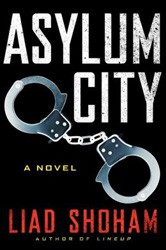By
– January 9, 2012
As in his earlier novels, Molina masterfully weaves a colorful tale of intrigue involving dark moments from an individual’s past as well as tangled events from the history of a nation. In the ebbing days of Franco’s regime, Minaya, a university student passionate about literature and his homeland, becomes involved in protests against the dictator. Hounded by the police, he escapes to the country estate of his uncle Manuel, his head full of the stories about this estate that his father had passed along to him as a child. Curious about his personal past, he begins to unravel the shrouded secrets about his uncle’s past and his uncle’s relationship with the poet Jacinto Solana, the subject of Minaya’s university thesis. Manuel’s country house yields a treasure trove of Solana’s photographs, notes, and journals. As Minaya begins his search through these materials to find Solana’s novel, Beatus Ille, he discovers that his uncle had been engaged to a woman, Mariana, whom Solana had also loved. As Minaya and his uncle’s maid, Inés, look further, they find clues to other unsolved mysteries and, in an appropriate postmodern twist, readers discover that they have been reading this lost manuscript. (Beatus Ille) is the Spanish title of Molina’s novel.) Although Grossman’s translation sometimes feels wooden and lifeless, Molina creates a compelling world worthy of a Buñuel film.
Henry L. Carrigan, Jr. writes about books for Publishers Weekly, Library Journal, BookPage, and ForeWord. He has written for numerous newspapers including the Atlanta Journal-Constitution, The Charlotte Observer, The Cleveland Plain Dealer, The Orlando Sentinel, The Christian Science Monitor, and The Washington Post Book World.





